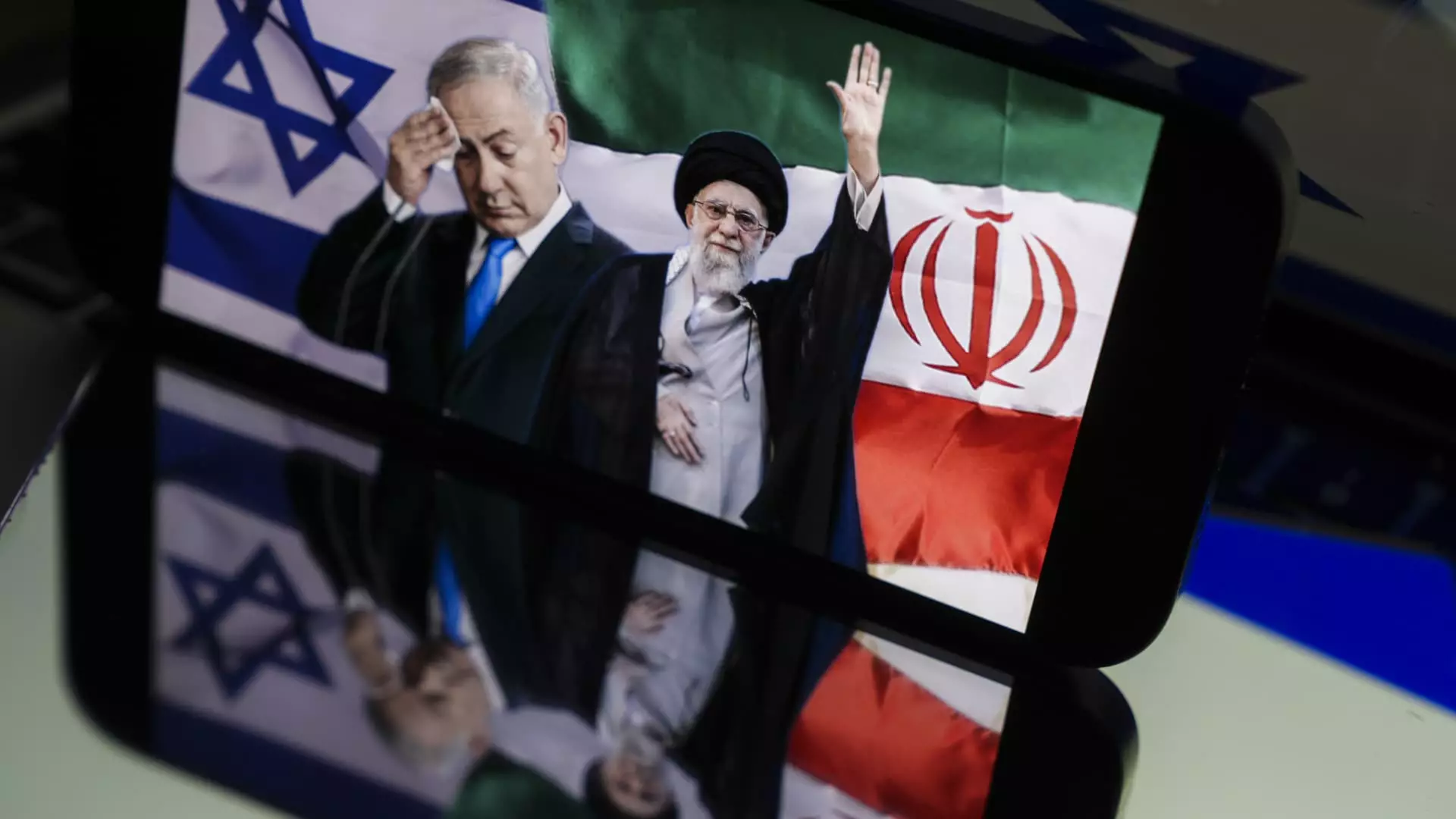In an era marked by mounting geopolitical tensions, the recurrent narrative suggests that war and conflict are inevitable responses to geopolitical and economic challenges, particularly regarding energy markets. However, this perspective dangerously underestimates the catastrophic consequences of turning to warfare as a tool for resolving complex international struggles. The recent escalation between Iran and Israel exemplifies this dangerous mindset, revealing how short-term market fluctuations often mask deeper, more destructive realities.
When Iran’s oil minister publicly criticizes war-induced disruptions, it reflects an awareness of the profound vulnerabilities inherent in relying heavily on volatile geopolitical factors. The notion that conflict might “impose complications on energy producers” admits, tacitly, to the fundamental fragility of global oil supply chains. Yet, the narrative remains entangled in a misguided belief that crises can be transient, manageable, or even beneficial if they lead to price adjustments. What this overlooks is the long-term damage inflicted on economies, societies, and diplomatic stability, which far outweigh transient market jitters.
The fact that Iran, one of the world’s largest oil producers, holds significant sway within OPEC underlines the peril of geopolitical conflicts. As tensions with Israel and the U.S. continue—especially with Iran’s nuclear ambitions and regional missile exchanges—the stability of global energy markets becomes increasingly precarious. These conflicts are not isolated incidents but are symptomatic of deeper unresolved issues, which, when weaponized, threaten the very foundations of global economic security.
The False Promise of Political Solutions Through War
Historically, leaders have clung to the illusion that war could serve as an effective means to achieve political ends, whether through sanctions, military strikes, or intimidation. The recent U.S. attacks on Iranian nuclear facilities exemplify this misguided approach. Instead of fostering stability, such actions escalate tensions, inviting retaliatory measures that destabilize entire regions and disrupt vital energy supplies. The notion that military interventions can bring about a “more benign scenario” is optimistic at best; more often, they lead to prolonged conflicts and unintended consequences.
The ongoing nuclear negotiations with Iran highlight the center-liberal dilemma: whether to pursue diplomatic solutions or accept the chaos of escalation. While sanctions and pressure aim to curtail Iran’s nuclear advancement, they paradoxically deepen economic hardships within Iran itself, pushing Tehran to resist and sometimes accelerate its clandestine programs. This cycle of hostility exemplifies how diplomatic deadlock perpetuates insecurity, undermining not only regional peace but also the reliability of global energy markets.
Far from being a mere economic issue, energy security is intrinsically linked to diplomacy and international cooperation. The temptations of military solutions ignore the importance of multilateral negotiations that address root causes—whether nuclear proliferation or regional rivalries—without resorting to destructive conflict. It’s critical to recognize that war might temporarily shift the balance of power or generate short-term gains, but it fundamentally destabilizes the global energy landscape.
Center-Left Realism: Toward Pragmatic and Humane Approaches
What’s painfully missing in the discourse surrounding Iran, Israel, and the broader Middle East conflicts is a recognition of the moral and pragmatic failures of war. Center-wing liberalism must advocate for a balanced approach—one that prioritizes diplomacy over violence, economic engagement over sanctions, and long-term stability over short-term geopolitical dominance. Engaging Iran through persistent diplomatic efforts, while maintaining firm but fair sanctions, could carve a pathway toward an eventual nuclear accord and regional détente.
The persistent reliance on military threats and aggression demonstrates a fundamental misjudgment, rooted in a desire for quick fixes rather than sustainable peace. As the world faces an impending energy crisis exacerbated by unpredictable conflicts, the danger lies in viewing war as a viable strategy. Instead, robust international institutions, regional dialogues, and economic incentives should form the core of a pragmatic policy framework—one that recognizes the interconnectedness of peace, stability, and economic prosperity.
It’s essential to challenge the assumption that conflict can solve complex geopolitical issues. The truth is, war breeds chaos, deepens divisions, and sabotages any prospects for genuine progress. For a center-leaning liberal stance, the priority remains fostering dialogue, respecting international norms, and understanding that lasting peace—though demanding and arduous—is the only strategy capable of securing a stable energy future. Disruptions caused by war are not isolated events but symptoms of systemic failures that demand innovative, humane, and collaborative solutions rather than lethal confrontations.


Leave a Reply